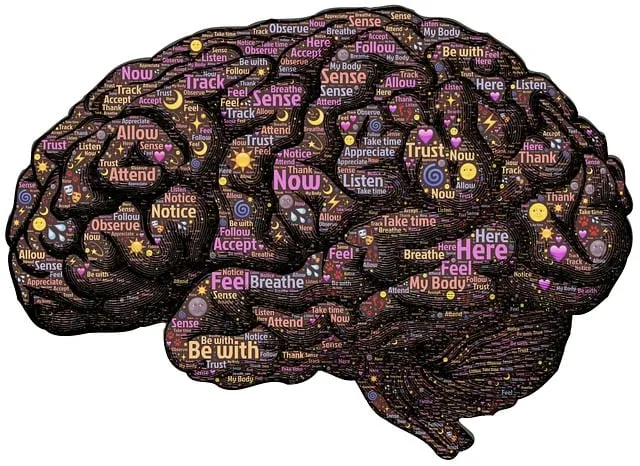The Centennial Kaiser Permanente behavioral health center leads the charge in mental wellness promotion with personalized coaching programs that combine evidence-based stress reduction, mind over matter principles, and flexible support. Their innovative approach caters to diverse needs, equips healthcare professionals with tools for stress management, resilience, and work-life balance, ultimately improving patient outcomes and care quality. Through tailored curricula integrating scientific understanding and empathy, the center advocates for mental health policy analysis and advocacy, empowering clients to overcome systemic barriers. Structured programs and robust measurement strategies ensure effectiveness, exemplified by successful tracking of progress through outcome measures, client evaluations, and coaching logs.
In today’s fast-paced world, mental wellness coaching programs are emerging as a vital tool for fostering resilience and promoting overall well-being. This article explores the growing importance of such initiatives, with a particular focus on the Centennial Kaiser Permanente Behavioral Health Center’s innovative approach. We delve into the design of effective curricula, implementation strategies, and measurement techniques, highlighting best practices that can guide organizations in enhancing employee mental health and productivity.
- Understanding the Need for Mental Wellness Coaching Programs
- The Role of Centennial Kaiser Permanente Behavioral Health Center
- Designing Effective Mental Wellness Coaching Curricula
- Implementing and Measuring Success in Coaching Programs
Understanding the Need for Mental Wellness Coaching Programs

In today’s fast-paced world, mental wellness is an increasingly important aspect of overall health and well-being, especially as institutions like the Centennial Kaiser Permanente behavioral health center recognize the rising demand for accessible and personalized support. The need for Mental Wellness Coaching Programs arises from the growing awareness that traditional therapy models may not cater to everyone’s unique needs. These programs offer a proactive approach to addressing mental health concerns by providing individuals with practical tools and strategies to manage stress, enhance resilience, and cultivate a positive mindset.
By integrating evidence-based Stress Reduction Methods and leveraging the power of Mind Over Matter Principles, coaches create a supportive environment where clients can explore their thoughts, emotions, and behaviors. This personalized guidance is particularly valuable for those who may feel intimidated by traditional therapy or prefer a more flexible, interactive approach to improving their mental wellness. The Risk Assessment for Mental Health Professionals plays a crucial role in tailoring these programs to ensure safety, efficacy, and positive outcomes for every participant.
The Role of Centennial Kaiser Permanente Behavioral Health Center

The Centennial Kaiser Permanente Behavioral Health Center plays a pivotal role in promoting mental wellness within the healthcare sector. This renowned facility has pioneered innovative approaches to addressing burnout prevention strategies for healthcare providers, recognizing that the well-being of medical professionals is essential for delivering optimal patient care. Through its comprehensive programs and services, the center offers valuable resources for stress reduction methods tailored to the unique challenges faced by healthcare workers.
By integrating evidence-based practices, Centennial Kaiser Permanente equips healthcare providers with effective mental wellness journaling exercise guidance. This approach empowers them to manage stress, enhance resilience, and cultivate a healthier work-life balance. The center’s commitment to these initiatives not only benefits individual practitioners but also contributes to creating a more supportive and sustainable healthcare environment, ultimately improving patient outcomes and the overall quality of care.
Designing Effective Mental Wellness Coaching Curricula

Designing effective mental wellness coaching curricula is an art that combines scientific understanding with empathy. At the Centennial Kaiser Permanente behavioral health center, professionals have been at the forefront of integrating innovative techniques to support individuals in their mental health journeys. One key aspect is tailoring programs to meet diverse needs, whether focusing on self-esteem improvement or mastering emotional well-being promotion techniques. This personalized approach ensures that each coaching session resonates with the unique challenges and aspirations of participants.
Moreover, effective curricula should go beyond individual growth by advocating for broader mental health policy analysis and advocacy. By equipping coaches with strategies to address systemic barriers, they can empower clients to navigate their mental health care more effectively. Incorporating evidence-based practices while fostering a supportive environment creates a powerful synergy that enhances the overall impact of coaching programs.
Implementing and Measuring Success in Coaching Programs

Implementing successful mental wellness coaching programs requires a structured approach and clear measurement strategies. At the Centennial Kaiser Permanente behavioral health center, for instance, coaches employ evidence-based techniques tailored to individual needs, focusing on areas like stress management, self-care, and coping mechanisms. Regular assessments and feedback sessions are integral to tracking progress; these may include outcome measures, client evaluations, and qualitative data from coaching logs.
By measuring success both quantitatively and qualitatively, the Stress Management Workshops Organization can adapt its programs effectively. This includes evaluating clients’ reported improvements in mental health symptoms, as well as their increased engagement in activities that foster resilience and well-being. Such measurements also feed into Mental Health Policy Analysis and Advocacy efforts, demonstrating program effectiveness to stakeholders and guiding future developments aimed at reducing the stigma surrounding mental illness.
The development of mental wellness coaching programs, as exemplified by the initiatives at the Centennial Kaiser Permanente Behavioral Health Center, is a promising approach to enhancing overall well-being. By designing curricula that address specific needs and implementing evidence-based strategies, these programs can significantly improve individuals’ mental health outcomes. As we continue to navigate the complexities of modern life, such interventions are vital in fostering resilience and promoting healthier lifestyles. The success of coaching initiatives like these is measurable through improved client satisfaction and tangible positive changes in mental health indicators.






